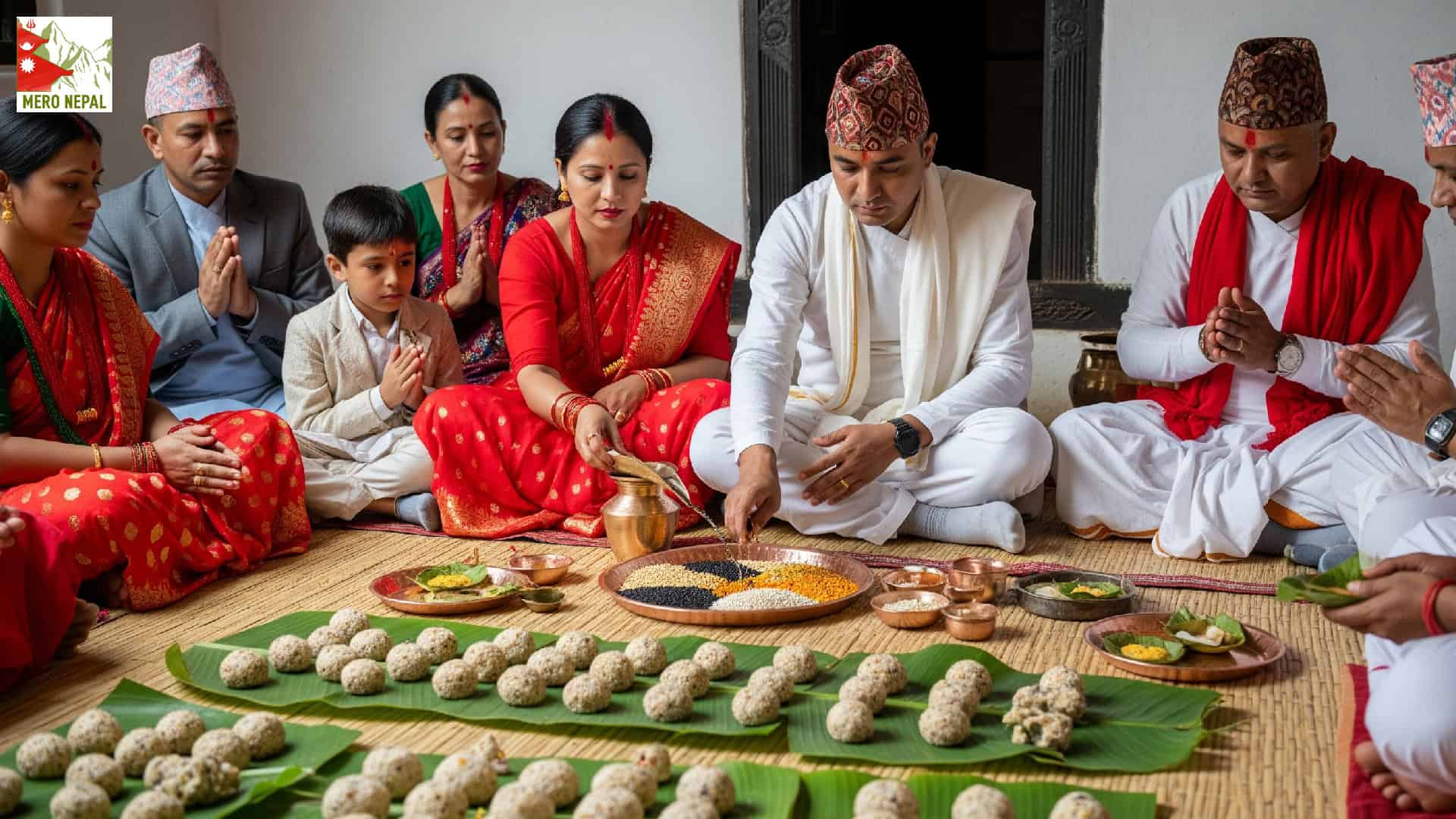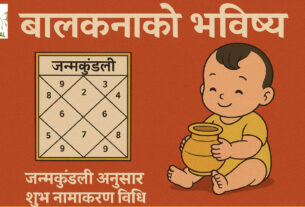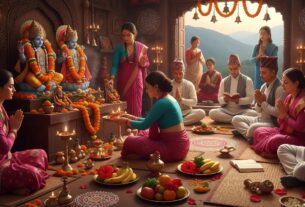Sohra Shraddha, also known as Pitru Paksha, is not merely a ritual—it is a sacred opportunity to express reverence, respect, and gratitude toward our departed ancestors. According to traditional beliefs, during this period, ancestors visit the homes of their descendants and expect offerings of water and food. Satisfying them is believed to bring happiness, peace, and prosperity to the family. However, many people often wonder what should or should not be done during this sacred time. Let’s understand these common questions in simple terms.
1. When should I perform Shraddha? How to know the correct date?
The most important aspect of Sohra Shraddha is performing it on the correct date. Here’s how:
Based on the date of death: The Shraddha for a particular ancestor (father, mother, grandfather, grandmother) should be performed on the lunar date of their passing. For example, if someone passed away on the Panchami tithi, the Shraddha should be observed on the Panchami of Sohra Shraddha, regardless of whether it is Shukla Paksha or Krishna Paksha.
If the exact date is unknown: If the exact date of an ancestor’s death is not known, Shraddha can be performed on the last day of Sohra Shraddha, i.e., Amavasya of Ashwin Krishna Paksha, also called Sarva Pitru Amavasya. It is believed that performing Shraddha on this day satisfies all ancestors.
2. What should be done on the day of Shraddha?
Three main rituals are performed during Shraddha: Tarpan, Pind Daan, and feeding Brahmins.
Tarpan: This involves offering water mixed with black sesame seeds, barley, and kusa grass to the ancestors. It is believed to quench their thirst.
Pind Daan: A mixture of barley flour, ghee, honey, and milk is prepared as a pind (offering) and presented to the ancestors as food. It is believed to provide them energy and peace.
Feeding Brahmins: Brahmins conducting the ritual are fed with devotion, and donations or dakshina are given as much as possible. Through the Brahmins, ancestors are believed to receive the offerings.
If one cannot perform these rituals independently, it is advised to hire a qualified priest to conduct them properly.
3. Dos and Don’ts during Sohra Shraddha
Participants and families are expected to maintain physical and mental purity. Some key practices include:
Do’s:
Satvik food: Consume pure vegetarian (satvik) meals throughout the period.
Daily bathing and Tarpan: Bathing and offering water to ancestors facing south is considered highly auspicious.
Reverence and respect: Maintain a peaceful and respectful atmosphere, remembering ancestors with devotion.
Don’ts:
Avoid tamasic food: Meat, fish, alcohol, garlic, and onion should be strictly avoided.
Avoid certain foods: According to scriptures, lentils like masoor and chana, and vegetables such as carrots, gourd, or beans, are also avoided.
Avoid auspicious events: No weddings, fasting rituals, housewarmings, or other auspicious activities should be conducted during this period.
No new purchases or investments: Buying new items like houses, cars, gold, or starting new businesses is considered inauspicious.
Hair and nail cutting: The person performing Shraddha should not cut hair, beard, or nails on the day of the ritual. Preparation should be completed the day before.
4. Should bells be rung in the puja room or daily prayers performed?
Do not ring bells: Shraddha is for ancestors, not deities. The sound of bells is associated with festivals and invoking gods. Since Shraddha is conducted in a solemn, calm environment, ringing bells is prohibited.
Daily puja is allowed: Regular household prayers can continue, but no additional special rituals or yagyas should be performed on Shraddha day. Shraddha itself is the main ritual.
5. Should children of living parents perform Shraddha?
This is a common question. According to scriptures:
Who should perform Shraddha: Generally, if the father is alive, the son is not required to perform Shraddha for grandparents. The living father completes the duty for his ancestors. The son may assist if needed.
Exception: A son may perform Mata Mah Shraddha for maternal grandparents even if the father is alive.
Following rules: The person performing Shraddha should strictly follow the rules, such as consuming only one meal and eating satvik food. Children of living parents need not perform Shraddha, but avoiding tamasic food during this period is recommended to honor ancestors.
6. What happens if Shraddha is not performed?
Shraddha is not just a tradition; it is a means to repay ancestral debt. Scriptures warn that those who do not perform Shraddha and Tarpan leave their ancestors unsatisfied. This may bring unrest, illness, obstacles in progeny, or financial losses. Performing Shraddha with devotion satisfies ancestors and blesses the family with longevity, knowledge, prosperity, and happiness.
Conclusion:
Sohra Shraddha is a festival of devotion and dedication. While following the rules is important, the most significant aspect is maintaining a pure heart and deep respect for one’s ancestors.
✨ Read more cultural and religious articles like this on the Mero Nepal App!
Stay connected with authentic traditions, festival updates, and spiritual guides—all in one place.
📲 Download Mero Nepal today and explore Nepal’s culture at your fingertips!





